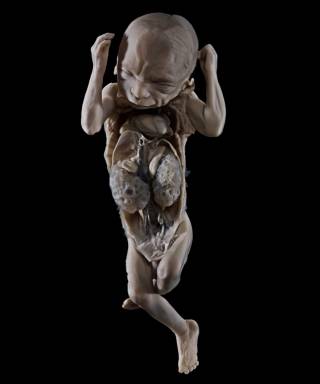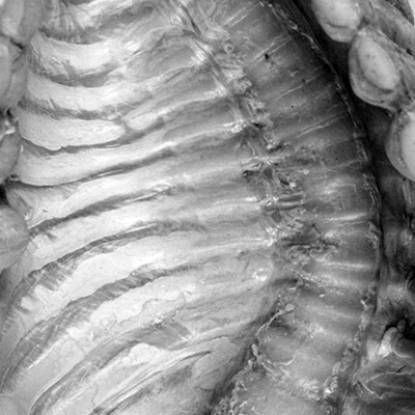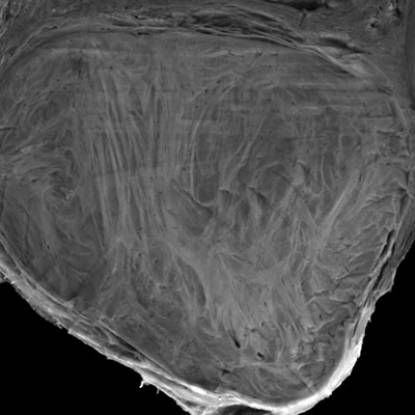Polycystic Kidney Disease
Please note that this page includes images of human remains.

Polycystic kidney disease is a genetic disorder that causes cysts to develop in the kidneys. It is one of the most common hereditary diseases and occurs in two different forms.
The first, autosomal dominant polycystic kidney disease (ADPKD) is present from birth but does not become an obvious problem until the cysts become large enough to affect how well the kidneys function. Often, this doesn’t happen until the person is between 30-60 years old. The other form, autosomal recessive polycystic kidney disease (ARPKD), causes abnormal development of the kidneys and liver and can cause serious problems soon after birth.
Around one in three babies with ARPKD develop breathing difficulties soon after birth and die within a few months. Those that survive this stage have a higher chance of surviving, but will likely develop kidney failure by age 15-20.
 Close
Close




